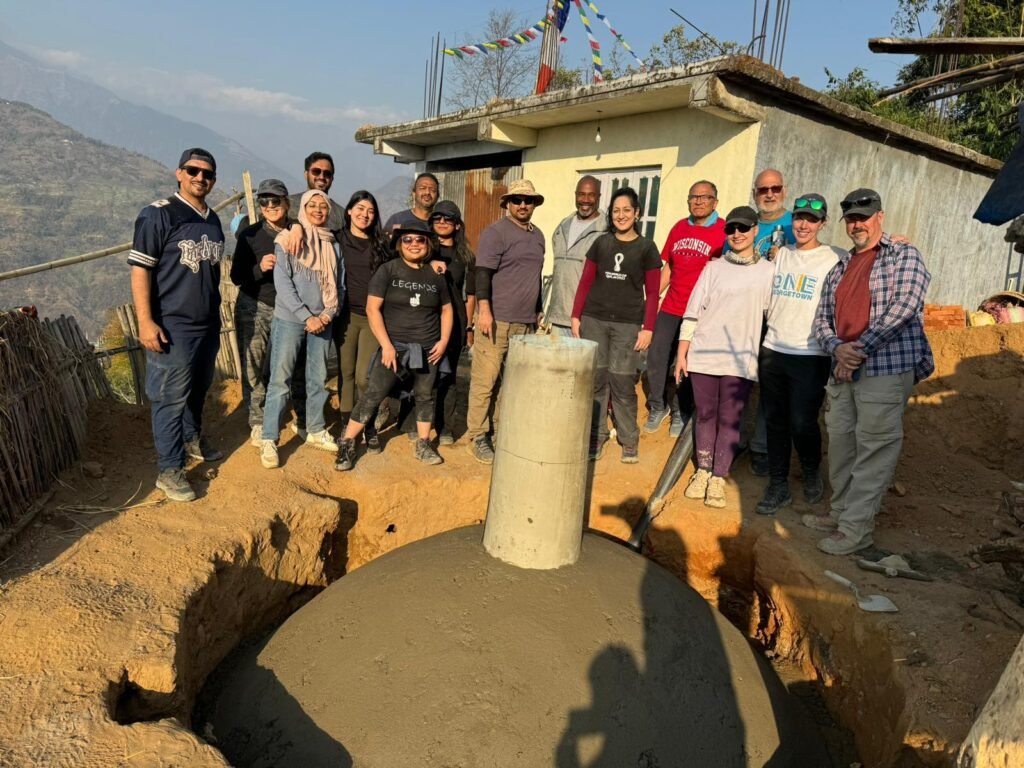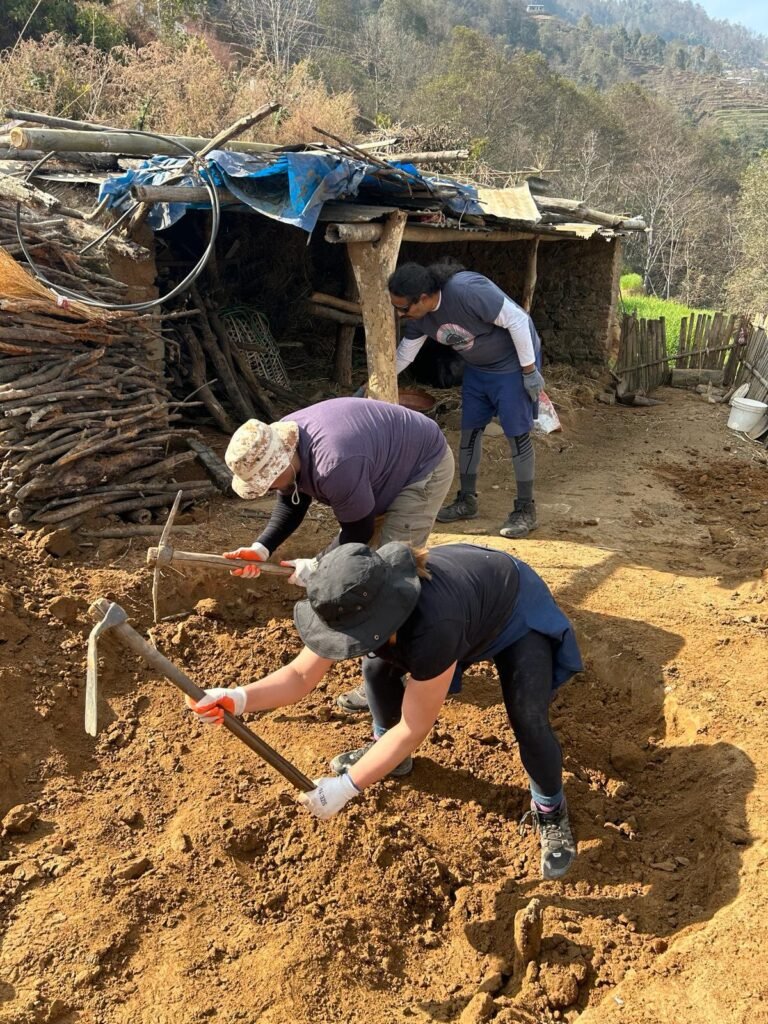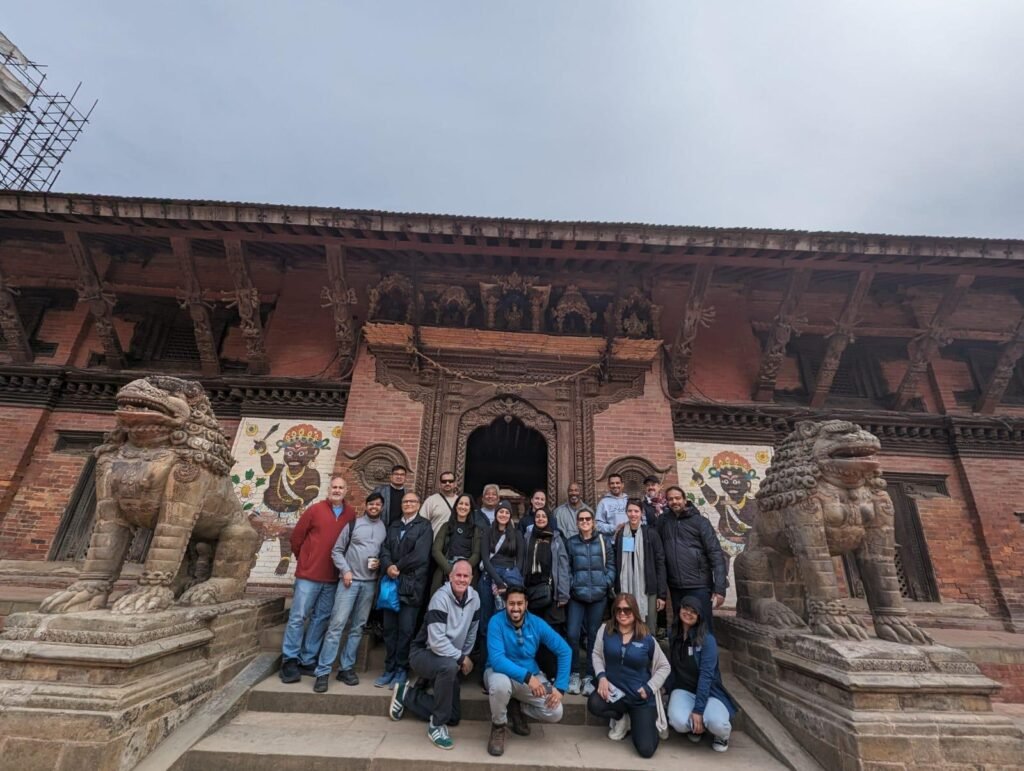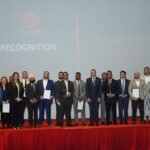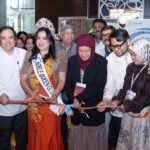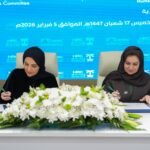Doha, 18 March 2024
A 16 member team of faculty and students of Georgetown Univesity, Qatsr Campus recently visited mountainside village of Thaprek, Nepal.
After seven days of service, the participants in the flagship Community Engagement Program enjoyed the deep sense of pride and satisfaction of having completed the construction of an energy source for the village by drawing on the combined skills and experiences of every member of their team.
This unique experience, drawing on GU-Q’s mission and values, was co-crafted by the Offices of Human Resources and Student Life in response to the vision of Dean Safwan Masri to foster a stronger sense of community and belonging within the university.
“While we all contribute in our separate ways towards the Georgetown mission, we sometimes don’t see the efforts of others within our work. This experience created a unique bond between participants from different departments within the university, who don’t regularly work together, to appreciate our sense of collective purpose and identity,” said Nicole Heinz, Director of Human Resources.
GU-Q worked with World Volunteers to organize the project on the ground in Nepal, focusing on sustainability and women empowerment through the act of building a biogas facility.
This project creates a sustainable, closed-loop system that turns animal waste into a clean source of gas for cooking and heating, minimizing the dependency on firewood, and providing a more sustainable source of gas for cooking and heating.
The result eliminates the need for women and children to spend hours collecting firewood, allowing for more time spent on schoolwork, play, or income-generating activities.
Jibin Koshy, Manager, Education Enrichment at GU-Q said, 'Our takeaway was on how the community in Thaprek identified a gap and used local knowledge to fix it. It was inspiring to see how the local community believed in the power of the collective to fix complex problems - an analogy that we can take back to our campus and in our classrooms'.
Andrew Henley, Chief Operating Officer and Senior Strategy Advisor added that “Building the biogas dome and, out of necessity, digging a giant hole, was much more than just the act of physical labor'.
He said that 'The shared commitment to a common goal and the belief that the project was important to the community created a magical bond among the GU-Q participants. Blisters and sore muscles became badges of honor, as everyone volunteered repeatedly to push their physical limits'.
There was a strong focus on group dynamics as well, “The collaborative effort allowed each member to contribute equally to completing the biogas project, fostering a true spirit of teamwork,” said Misba Bhatti, CIRS Research Analyst.
In addition to working on the project, the team spent many hours in debriefs and conversations on topics related to social change, personal growth, motivation, and self-development. These conversations allowed participants an opportunity to express themselves and acknowledge differences in opinions while learning from each other.
“People came together in extraordinary ways when they understood the importance of their actions to someone else. The project became a testament to a shared purpose and collective commitment, transcending individual roles and responsibilities,” said Dr. Dennis McCornac, Associate Professor of Economics.
Hussein Aldobashi, Associate Director of Housing and Residential Safety noted, “Witnessing the potentially life-changing impact of biogas on the local community made me more thankful and aware of the importance of appreciating the small changes that make big improvements in the lives of others.”
Returning with hearts full of gratitude and a profound sense of accomplishment, the participants also brought back shared memories of a wonderful experience and the satisfaction of knowing that they had played a part in building a stronger community both in Nepal and at GU-Q.
Georgetown University established in 1789 in Washington, DC, is one of the world’s leading academic and research institutions.
Georgetown University in Qatar (GU-Q), founded in 2005 in partnership with the Qatar Foundation, builds upon the world-class reputation of the university through education, research, and service.
Inspired by the university’s mission of promoting intellectual, ethical, and spiritual understanding, GU-Q aims to advance knowledge and provide students and the community with a holistic educational experience that produces global citizens committed to the service of humanity.
Georgetown’s unique, interdisciplinary program prepares students to tackle the most important and pressing global issues by helping them develop critical thinking, analytical, and communication skills within an international context. GU-Q alumni work in leading local and international organizations across industries ranging from finance to energy, education, and media. The Qatar campus also hosts the Executive Master in Diplomacy and International Affairs along with the Executive Master’s in Leadership graduate degree programs.
For more information, may contact Nahla El Sherif at +974 3006 6412


